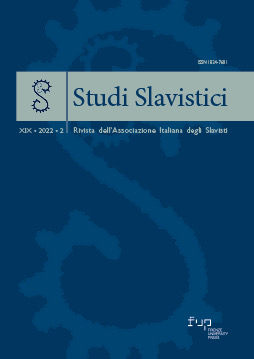Published 2023-01-25
Keywords
- Amatory Hejnał,
- Aubade,
- Hieronim Morsztyn,
- Zbigniew Morsztyn
Funding data
-
Narodowe Centrum Nauki
Grant numbers 2012/07/B/HS2/01297
Abstract
The article presents the genre of the Polish amatory hejnał, defined in C. Hernas’ Hejnał polski. Studium z historii poezji melicznej (1961). This original genre, as well as other Polish poems which could be classified as aubade, was not included in A.T. Hatto’s collection Eos: An Enquiry into the Theme of Lovers’ Meetings and Partings at Dawn in Poetry (1965). The author of this article, focusing much of her research on medieval and early modern morning love poems, enumerates the features of amatory hejnał, showing its literary sources, in particular the scheme taken from Ovid’s Amores i 13. Although the amatory hejnał derived from a parody of M. Rej’s religious hymn (drunken, rural, or a political variation, among others), it then combined the features of aubade, serenade and Latin elegy and entered the group of European songs of lovers meeting at dawn. The main authors discussed here are the 17th-century poets, Hieronim and Zbigniew Morsztyn.


